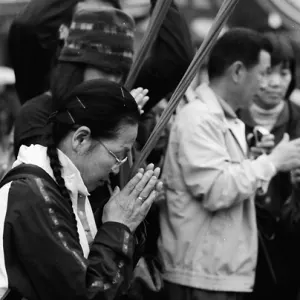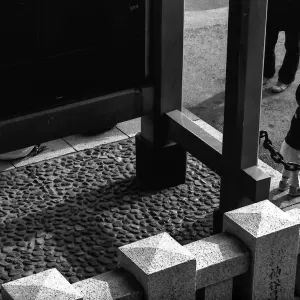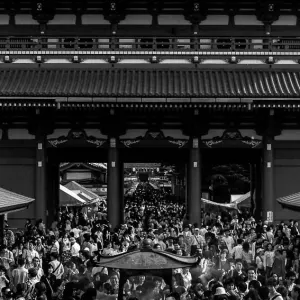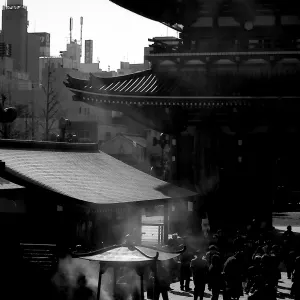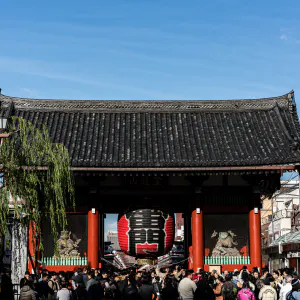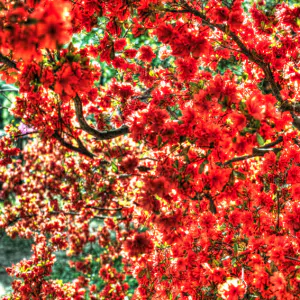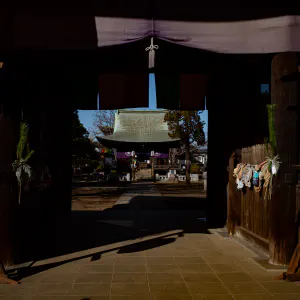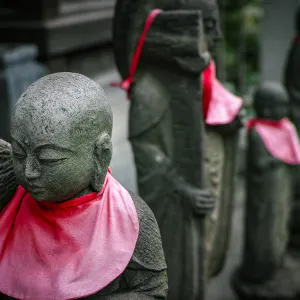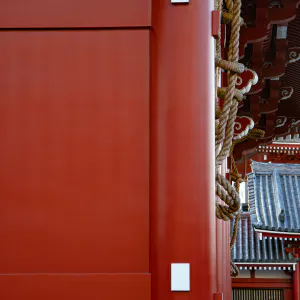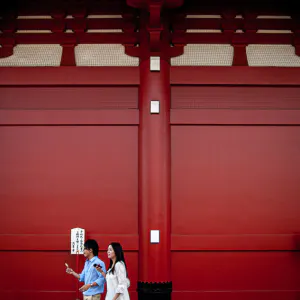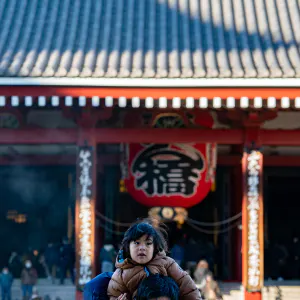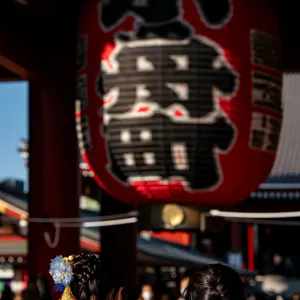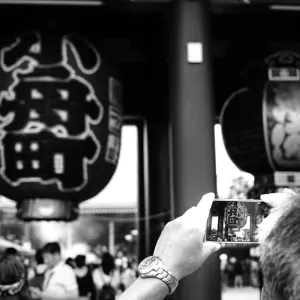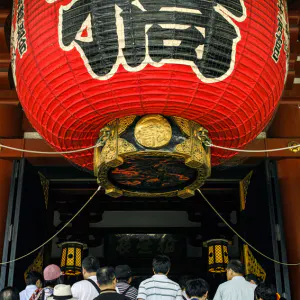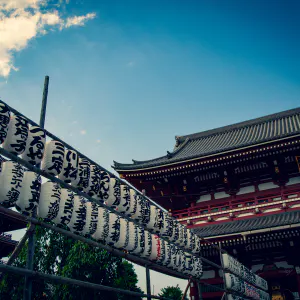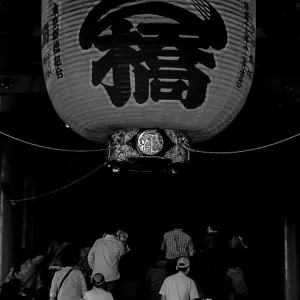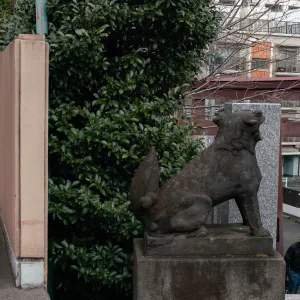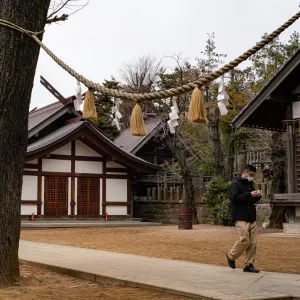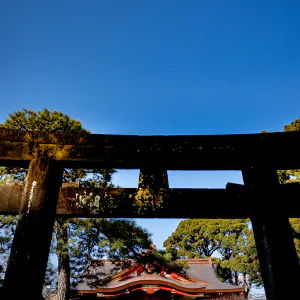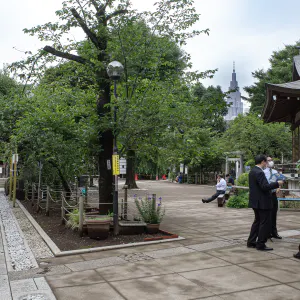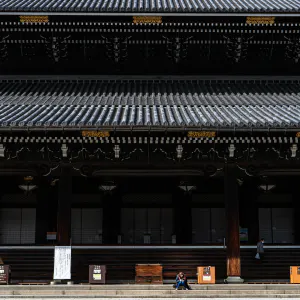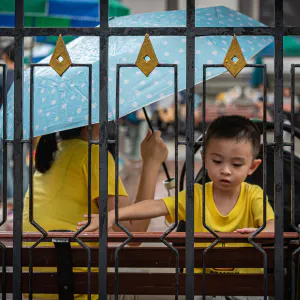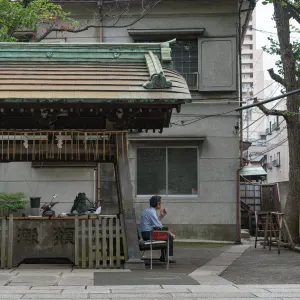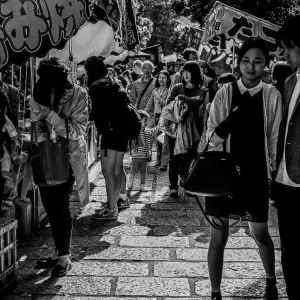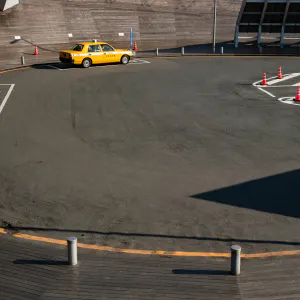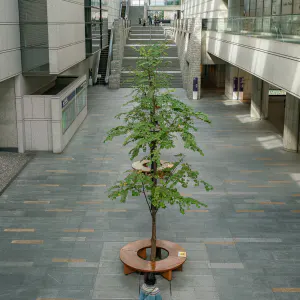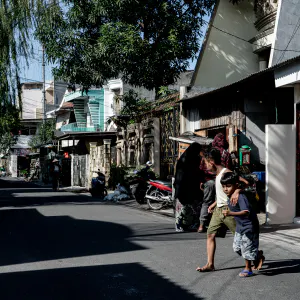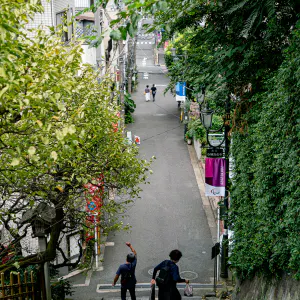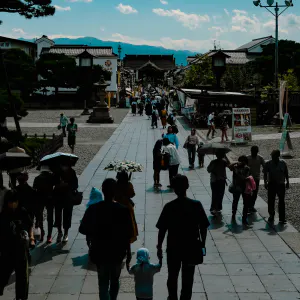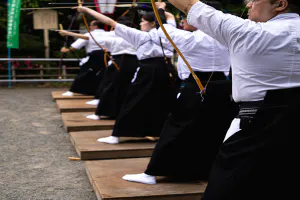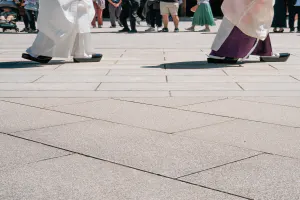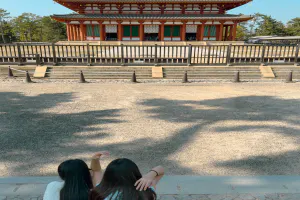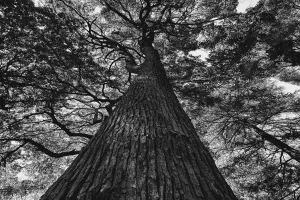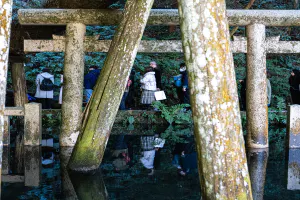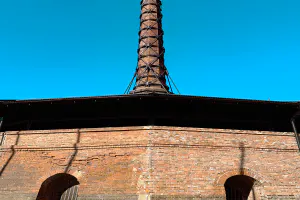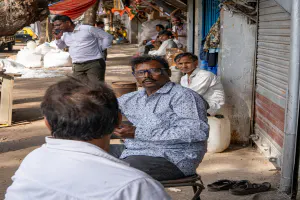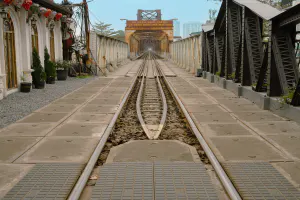Beyond the large lanterns of the Hozo-mon gate, I could see the large lanterns of the Kannon-do
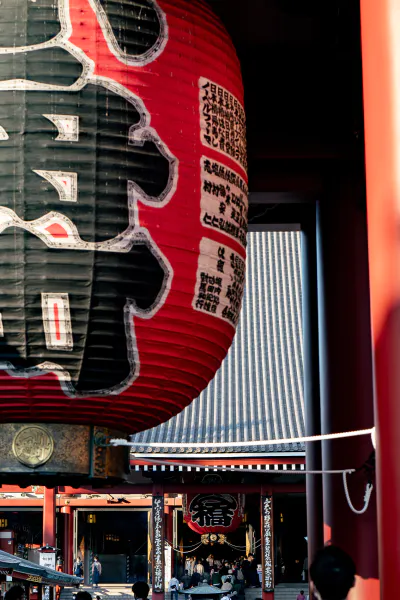
One of the most eye-catching things at Senso-ji Temple are the large lanterns. There are large lanterns in many places in the temple grounds. If you go from the main gate, Kaminari-mon, to Kannon-do, you will first see the first lantern hanging below Kaminari-mon. After passing through the Nakamise, there is a second large lantern at the Hozo-mon gate, and a third large lantern hanging in front of the Kannon-do. Each large building has its own large lantern.
Each lantern has the words "Kaminarimon," "Kobunacho," and "Shimbashi" written on it in a unique Kantei style script. I can understand why the lanterns at Kaminari-mon say "Kaminari-mon," but I can't understand why "Kobunacho" and "Shimbashi" were written just by looking at them.
Kobunacho refers to Nihonbashi Kobunacho, and Shimbashi refers to Shimbashi in Minato Ward, both of which are in Tokyo, albeit far from Asakusa. It is said that people from these remote towns dedicated lanterns to the Senso-ji Temple in order to promote themselves. Since the Edo period (1603-1868), Asakusa has been a busy shopping area with many visitors. The Senso-ji Temple is the center of the district. A lantern with the name of the town written on it would have a great advertising effect on the temple grounds, where many people walk around. The people of Kobunacho and Shimbashi dedicated lanterns to the Senso-ji Temple in order to advertise the temple.
Incidentally, the lantern with "Kaminari-mon" written on it was dedicated by Panasonic, an electric appliance manufacturer. If Konosuke Matsushita had thought of publicity first like the people of Kobunacho and Shimbashi, the name of Panasonic might have been written on the lantern instead of Kaminari-mon.
| Jun 2021 ARCHITECTURE TOKYO | |
| ASAKUSA LANTERN PRECINCT RED SENSO-JI |
PHOTO DATA
No
11936
Shooting Date
Oct 2020
Posted On
June 13, 2021
Modified On
August 22, 2023
Place
Asakusa, Tokyo
Genre
Architectural Photography
Camera
SONY ALPHA 7R II
Lens
ZEISS BATIS 2/40 CF
